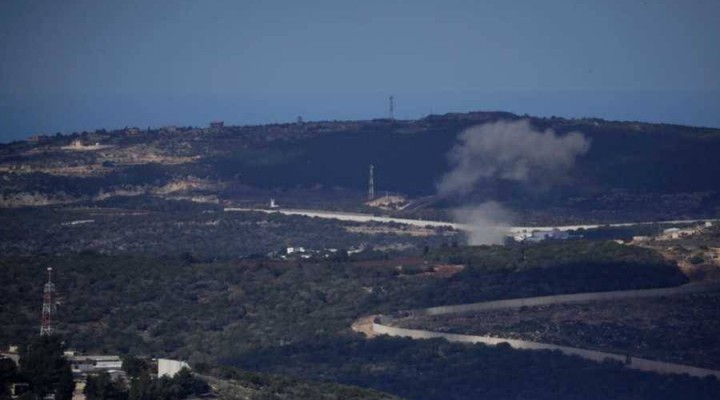Why is the anticipated Lebanon ceasefire generating so much media attention?

Why should we advise prudence and foresight? How did Hezbollah’s Great Sunday missiles punish Netanyahu and affect political and military equations?
Anyone following Israeli and American media (there’s not much difference) today gets the impression that a ceasefire agreement between the occupying state and Hezbollah in Lebanon is close, possibly within two days, and that Benjamin Netanyahu has approved it. After meeting with his war cabinet ministers, he ordered Amos Hochstein to sign the proposed American agreement as soon as feasible.
Hezbollah has not remarked on these days of “optimism,” thus its silence cannot be taken as approval. It has previously cautioned against the occupying state and its agents in Lebanon spreading “false positive atmospheres” to deceive, confuse, and deepen Lebanese disagreements and divisions in all their manifestations.
Any objective reading of Lebanon’s recent events must include several points:
• After the “Black Sunday” attack on Israeli military and intelligence bases in Greater Tel Aviv, Haifa, and Safed by Hezbollah fighters, well-planned and carefully prepared waves of optimism spread, this caused 4 million Israelis to flee to shelters, Ben Gurion Airport to close, major flames, and injuries.
• The second: These beneficial developments are being spread quickly to calm Jewish settlers in the north, centre, and south of occupied Palestine, who have started sleeping and waking up to sirens and rocket blasts.
• Third: Due to a record 51 missile and drone operations on Sunday (the previous number was 34), schools in the north and western Galilee cities (Acre, Haifa, Nahariya) and the eastern Galilee (Safed) have been closed and replaced with online homeschooling.
• Fourth: Hezbollah missiles, most of which are heavy and precise, arrived in Ashdod, the second largest port in occupied Palestine, for the first time in the fight, damaging a naval facility. The Gaza Strip has traditionally bombarded this port city with less accurate opposition missiles. This is significant because rockets that reach Ashdod in the south potentially target the “Dimona” nuclear facility in the occupied Negev “Hezbollah” lions fulfilled Netanyahu’s call to negotiate with fire and under it, “adding a couple more,” as our Egyptian brothers say, with historic Sunday (yesterday) attacks that set precedents and broke military records.
These missiles and drones, with their record numbers and high destructive capabilities, are the strongest response to Netanyahu’s lies that his forces had destroyed more than 80% of Hezbollah’s combat and missile capabilities and made the party weaker than ever.
Netanyahu’s green light and media campaigns focussing on the imminent ceasefire in Lebanon show that he has lost in Lebanon and wants to escape quickly to minimise losses, especially since his ground war has failed to return northern settlers or destroy “Hezbollah” in southern Lebanon.
We conclude that the battlefield, its actions, missiles, and drones will decide the outcome of the war in Lebanon or Gaza, not Netanyahu, Hochstein, or even the new Jewish ambassador Daniel Shapiro, Deputy Assistant Secretary of Defence, who arrived in Tel Aviv yesterday.
The Secretary-General of “Hezbollah,” Sheikh Naim Qassem, warned in his last statement, “The response to the bombing of Beirut will be in the heart of Tel Aviv, and we will not shout first.” The Great Sunday missiles have left the enemy wailing in pain.
 TheAltWorld
TheAltWorld 
HAILHEZBOLLAH
Exactly, THE MAIN REASON “ISRAEL” ACCEPTS A “CEASEFIRE” (IT WON’T RESPECT) IS BECAUSE IT’S LOSING ITS GENOCIDAL WAR IN LEBANON AND ITS ARMY AND SOCIETY ARE EXHAUSTED.
But they will keep the ethnic cleansing going on in Palestine and will try to force the US into a war vs Iran (if they do, they’ll lose).
Hezbollah has again saved Lebanon and won the war. The Lebanese government however is too subservient to the US and that might be what the zionists (israelis and US) are trying to do: create the conditions of another struggle between Lebanese.
Without Hezbollah, Lebanon would have become another Gaza.
When are Egyptians and Jordanians topple their puppet dictators and join the fight against the cancer that destroy the region since too long?
We hope the Resistance will keep striking at the zionists until they leave Gaza.
GOOD NEWS:
Israeli settler reverse migration revealed for first time since Oct. 7
https://english.almayadeen.net/news/politics/israeli-settler-reverse-migration-revealed-for-first-time-si
Israeli Health Ministry: 22,717 IOF soldiers injured so far
https://english.almayadeen.net/news/politics/israeli-health-ministry–22-717-iof-soldiers-injured-so-far
According to Iranian Foreign Minister Abbas Araghchi, Gaza’s slaughter is simply the latest in a long line of genocidal attacks against Palestinians.
Hezbollah Strikes Key Israeli Positions, Halts Border Advance, Forces Retreats
https://english.almanar.com.lb/2278322
Puma to end sponsorship deal with Israeli football team: BDS
https://www.presstv.ir/Detail/2024/11/26/737979/Palestine-Israel-BDS-boycott-Puma-campaign-terminate-sponsorship-deal-IFA-Gaza-war
West Asia peace impossible with Zionist occupation: Araghchi
https://english.almayadeen.net/news/politics/west-asia-peace-impossible-with-zionist-occupation–araghchi
Mirror Gazers
Exceptionalists tend to be enmazed in linear paradigms creating lands of opportunities for others.